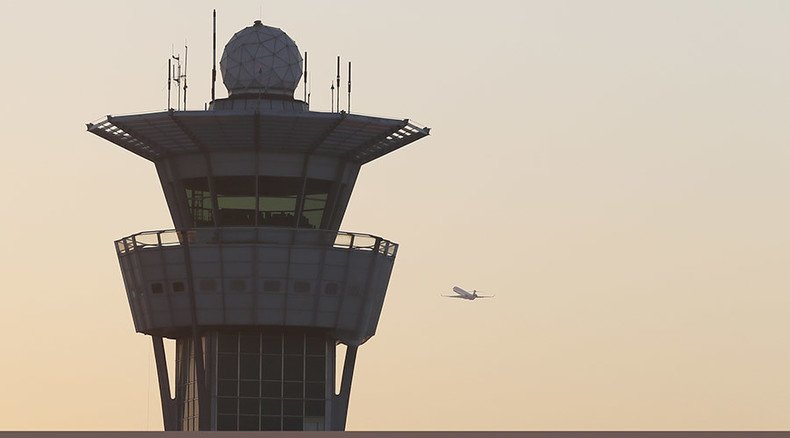FAA buried study showing air traffic controllers battling chronic fatigue – report

An inter-agency study conducted by NASA for the Federal Aviation Administration (FAA) to assess fatigue in air traffic controllers was reportedly kept under wraps for four years. The study found work schedules often led to chronic fatigue.
The FAA released the 270-page study online on Monday, but only after the Associated Press reported the findings of a draft copy they obtained that was dated from 2011, and only after the agency had declined to release a copy to the news agency. The FAA’s report is dated from 2012, although the AP says the findings are nearly identical.
READ MORE: Drone flies dangerously close to airliner, FAA investigates
A NASA spokesman had also refused to release the study, saying in an email to the AP that since the report had been created at the FAA’s request, “they own the rights to decide its release.”
The study found the controllers’ work schedules often led to chronic fatigue, making them less alert and a safety risk to the national air traffic system.
AP Uncovers Suppressed Study on Air Traffic Controller Fatigue http://t.co/f3gd7bYzbl#Travelpic.twitter.com/nt5igxUx2p
— TravelPulse (@TravelPulse) August 10, 2015The study involved a survey which asked 3,268 controllers for information about their work schedules and sleep habits. Besides survey data, it included, sleep logs, a field study of 200 controllers at 30 air traffic facilities wearing wrist-actigraphy sensors, and psychomotor vigilance tests that measure timed reactions.
Controllers were found to sleep 5.8 hours per night on average over the work week. They averaged only 3.25 hours before midnight shifts, which typically began about 10 pm and ended at 6 am, and 5.4 hours before early morning shifts.
For those working the midnight shift, 70 percent said they caught themselves “about to doze off” while actively working.
READ MORE: Computer glitch grounds all domestic United Airlines flights
Nearly two in 10 controllers had committed significant errors – such as bringing planes too close together – and more than half said the errors were due to fatigue.
“Chronic fatigue may be considered to pose a significant risk to controller alertness, and hence to the safety of the ATC (air traffic control) system,” the study concluded, especially when combined with little stimulation during periods of low air traffic and the human body’s natural pressure to sleep during certain times of the day.
Study: Air traffic controllers suffering from "chronic fatigue" http://t.co/wMDWfnoUvbpic.twitter.com/85AiwIviUe
— The Hill (@thehill) August 10, 2015The purpose of the study was to assess fatigue in the 18,000-strong air traffic controller workforce. Controller fatigue had been implicated in several accidents and incidents, notably the Comair 5191 accident in Lexington, Kentucky in 2006, which killed 47 passengers and two of its three crew members when the plane ran off the runway.
NASA submitted its findings in 2012 but the FAA did not accept them because it said NASA did not understand the 24-7 air traffic operational environment. The FAA also said the agency’s results were “judgmental rather than quantitative,” and based on “sourcing opinion versus science.”
READ MORE: FBI investigates series of bomb & chemical threats against airliners
The FAA said it has taken measures based on the report’s findings, including the introduction of recuperative breaks, a self-declaration of fatigue policy, and an increased number of hours off for the midnight shift.
The study found the most tiring schedules were those requiring controllers to work five straight midnight shifts, or six days a week for several weeks in a row, often with at least one midnight shift per week. The human body’s circadian rhythms make sleeping during daylight hours before a midnight shift especially difficult, according to the study.












